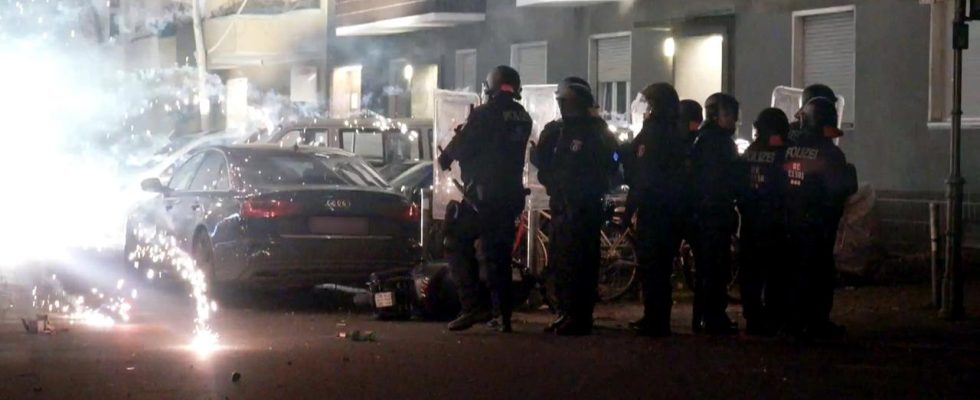After the attacks on rescue workers on New Year’s Eve in Berlin, there was a lot of excitement – and the debate was loud. Summits against youth violence and declarations of intent followed. That’s it?
When Baris Coban looks at the pictures of the burning bus from Neukölln’s New Year’s Eve, the fireman gets emotional. “You try to tick that off, but I notice that it left a scar,” says the 34-year-old in retrospect. Coban was on duty that night and on his way to the burning bus. Along with his comrades, he fell into a targeted ambush and was attacked.
At first there was a lot of anger, reports the father of three. Today, six months later, he focuses on prevention work. He wants to go to schools and youth clubs in Neukölln in the coming months. The active trade unionist would like to present himself and his work. He wants to show that there are people behind the fire service uniform.
New Senate in office
That New Year’s Eve in Berlin also had political consequences. A loud, excited debate began about integration, harsher sentences and youth work. Especially since the parties in the capital were in the middle of the election campaign.
The response of the then red-red-green Senate of the Governing Mayor Franziska Giffey to the riots on New Year’s Eve were two hastily convened so-called youth violence summits. It was decided to spend 90 million euros on measures against youth violence this year and next. 60 new social workers alone are to be deployed in problem neighborhoods – and quickly, as Giffey announced shortly before the parliamentary elections in February. “If we want to change something, then it has to be on the street now. Otherwise it won’t reach the youth facilities anymore. That’s why we can’t wait until a new state government has formed and everyone has cleared their desks.”
But that is exactly what happened, reports her party colleague Martin Hikel. He is the mayor of Neukölln. Berlin is now governed by a coalition of the CDU and SPD. She is currently negotiating the budget and discussing what she actually wants to spend money on. Hikel says he’s sobered up after an initial wave of euphoria earlier this year. “I certainly see the real danger that we’ll look at each other again with wide eyes at the next opportunity and ask how it could have happened.”
It takes money and jobs
The youth club “Yo!22” in Neukölln is one of the facilities that could benefit from the 90 million euros that the Senate has promised. A popular meeting point for young people from Neukölln. Most of those who come here have a migration history. Mahmoud, who has just graduated from high school, says that the debate about first names and supposed “little pashas” left him with a bad feeling. “I had absolutely nothing to do with the riots. Of course, I realize that not everyone in Neukölln means it, but I feel I’ve been pigeonholed.” He feels bad when he’s on the go. “I feel like people on the street are looking at me and thinking this is one of them.”
At “Yo!22” the social workers have big plans for the coming months. They would like to expand their mentoring program to support even more young people. They want to open on New Year’s Eve to create an alternative offer for the young people of the district. However, all of this requires money and jobs, reports Mounieb Al Said. He works at “Yo!22” as a mentor. “The implementation is the most important thing. However, we haven’t seen too much of that yet. Something has to happen now, otherwise we’ll have a New Year’s Eve 2.0 here.”
Task Force for Attacks Against Rescue Workers
On New Year’s Eve six months ago, police and firefighters in Berlin were fired at with rockets, but some were also attacked with iron bars, stones and bottles. The public prosecutor’s office has drawn conclusions from this and set up a task force. This now takes care of the attacks on rescue workers alone. So far, such cases have been processed in several departments. Charges have been filed in more than 15 cases so far. In total, the task force has more than 110 investigations.
With a view to the coming turn of the year, the police union is calling for an extensive ban on firecrackers in the city. Then there would be fewer people on the streets, says spokesman Benjamin Jendro, which would make the work of the emergency services easier. He criticizes the fact that nothing has happened in the city after the youth violence summit. Jendro also calls for a long-term plan from the city when it comes to attacks on rescue workers: “There is no need for a quick shot here, a strategy is needed here. If you are constantly attacked, it also affects you mentally. It leaves mental traces .”

